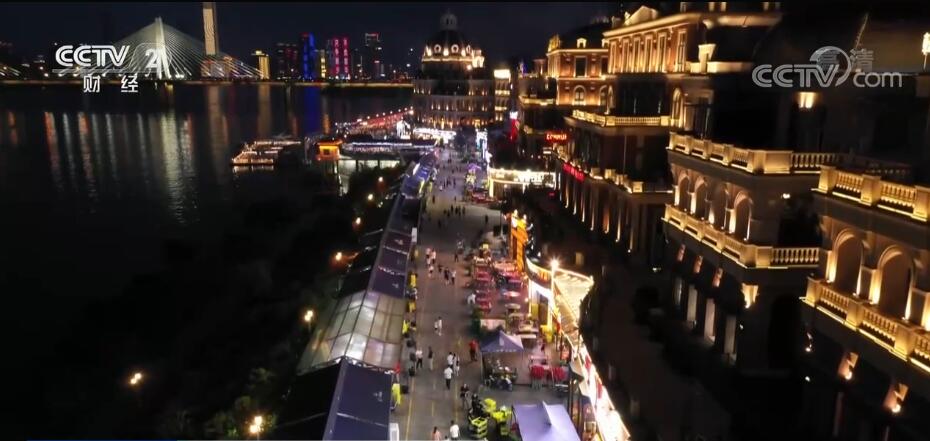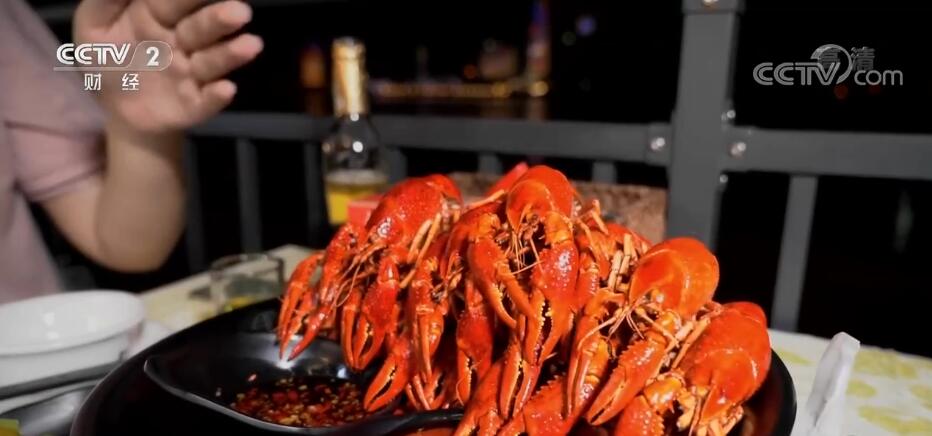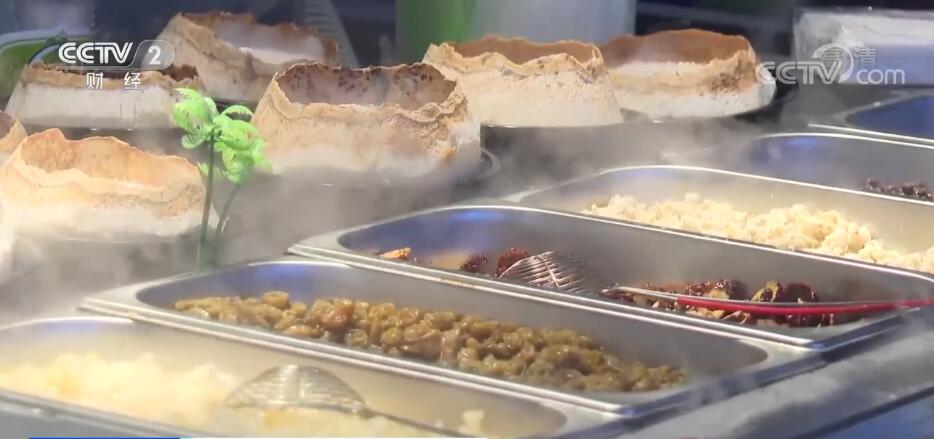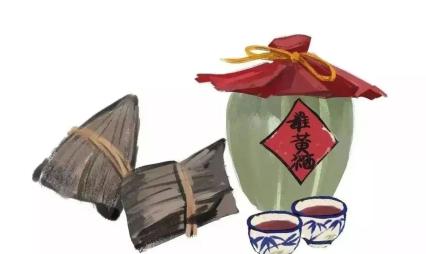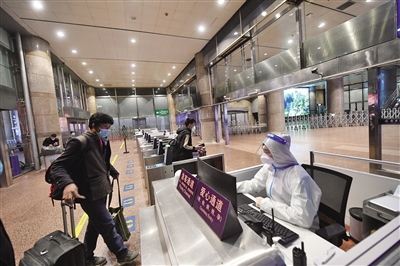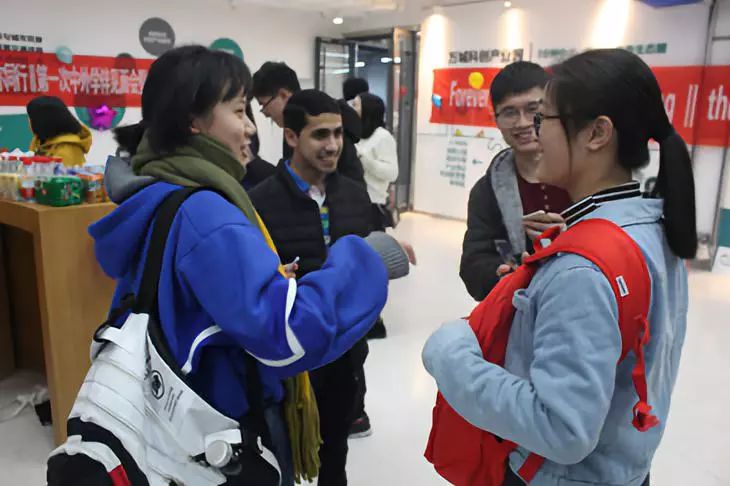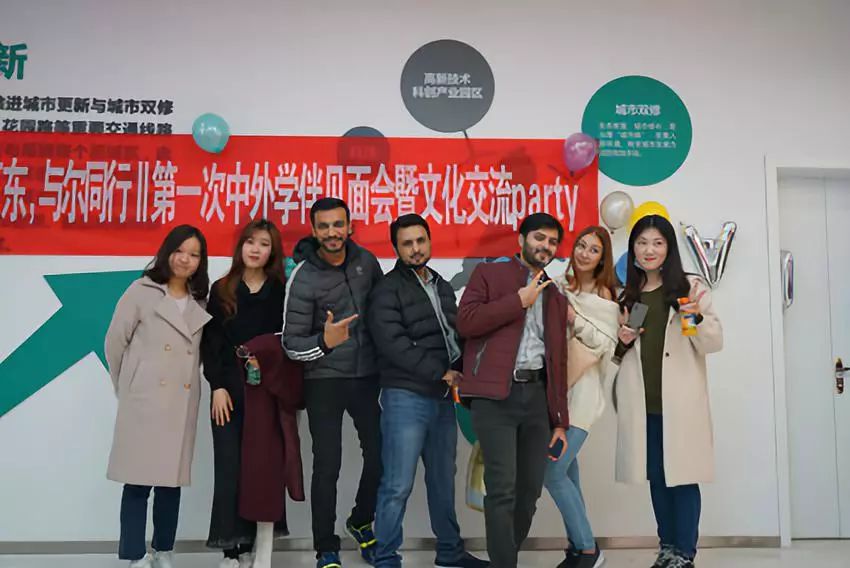In July 1985, senior executives from seven industries gathered at the home of Dr. Irwin Jacobs in San Diego to discuss an idea. These dreamers-—Franklin Antonio, Adelia Coffman, Andrew Cohen, Klein Gilhousen, Irwin. JacobS, Andrew Viterbi and Harvey White—-decided that they wanted to build "high-quality communication" and made a plan, which eventually evolved into one of the greatest entrepreneurial success stories in the communication industry: Qualcomm.

Founding team of Qualcomm (from official website, Qualcomm)
At the beginning of its establishment, Qualcomm mainly provided project research and development services for the wireless communication industry, and also set foot in limited manufacturing. One of the company’s early goals is to develop a commercial product. OmniTRACS was born from this. Since its introduction in 1988, OmniTRACS has grown into the largest satellite-based commercial mobile system in today’s transportation industry. Qualcomm’s current intellectual property portfolio includes more than 10,100 US patents on wireless technology, which are authorized by more than 165 communication equipment manufacturers around the world.
In fact, CDMA is based in Hollywood! ?

Lamarr
Ever since she was described as the most beautiful woman in the world, actress Hedy Lamarr became the most dazzling screen star in Hollywood in 1930s and 1940s. However, Ms. Lamarr has another talent: she is very talented.
Lamarr and avante-garde composer George Antheil invented the concept of frequency hopping, that is, multiple frequencies can be used together to send a wireless transmission signal. This concept finally provided the basis of CDMA air link, which was first commercialized by Qualcomm in 1995. Today, CDMA and its core principles have become the backbone of wireless communication, which is due to the innovative idea of this outstanding woman.
Just like the core of the CPU, the essence of any model is its CPU or chipset including CPU. Qualcomm’s mobile phone chipset mainly includes Mobile Station Modems(MSM chipset), single chip (QSC) and Snapdragon platform. The following is a brief introduction of these three chipsets:
Qualcomm MSM chipset:
Mobile Station (MSM)
http://www.qctconnect.com/products/mobile-processors.html
MSM chipset solutions create cost-effective mobile handheld devices with advanced technology.
Qualcomm single chip:
http://www.qctconnect.com/products/single-chip-solutions.html
Single Chip (QSC) solution provides an economical and available 3G wireless solution for everyone.
Snapdragon platform:
http://www.qctconnect.com/products/snapdragon.html
The Snapdragon platform combines the 1GHz core with the performance of low power consumption, creating a new mobile device with high performance.

Snapdragon
According to different positioning, Qualcomm’s chipsets are divided into economical, multimedia, enhanced and integrated types.
Next, according to the information provided by Qualcomm, the author gives a brief introduction to 13 Qualcomm mobile phone chipsets and lists the mobile phones using these chipsets:
MSM6260/
Chip introduction:
MSM6260 is produced by TSMC’s 65nm low power process technology, and is designed for mainstream mobile applications running on WCDMA(UMTS), HSDPA and GSM/GPRS/EDGE(EGPRS) air interfaces. MSM6260 is one of the first 65nm components of TSMC analyzed by SI, and its SRAM cell size is 0.52μm2. As a multimedia platform, MSM6260 can achieve shorter design cycle and lower development cost. This chip is compatible with other chipsets of Qualcomm, such as MSM6245 and MSM6255a solutions, and can achieve RF and pin compatibility.
INQ INQ1 using this chip.
GSM Association, the organizer of GSM, announced the 2009 Global Mobile Awards, among which the "Best Mobile Terminal Award" that domestic netizens are most concerned about was won by INQ INQ1, which seems to be "very thunder and very cottage". INQ is a newly established mobile phone division of Hutchison Whampoa in Li Ka-shing, and INQ1 is the first mobile phone of INQ. It is called the world’s first "social mobile phone" because of its embedded software such as Facebook, eBay, Windows Live Messanger, etc. It was highly praised by the judges of the GSM Association and won the "Best Mobile Terminal Award" in one fell swoop.

INQ INQ1 who won the MWC 2009 best mobile terminal award.
What many netizens don’t know is that the OEM factory of INQ INQ1 is not others, but our company, and Qualcomm (Qualcomm) of the United States provides the chipset for INQ INQ1. It was finally customized by Hutchison Whampoa "3" and listed in a specific country or region. INQ INQ1 won the prize, which also represents the importance attached by the GSM Association to mobile social mobile phones and the development trend of mobile Internet.

INQ1
References:
Super-detailed introduction of social mobile phone INQ1, the grand prize winner.
//mobile.zol.com.cn/126/1265714.html
MSM6500/:
MSM6500 is a high-capacity and high-speed wireless data solution, which supports CDMA2000 1X, CDMA2000 1xEV-DO and GSM/GPRS standards, and supports roaming between the third generation (3G) and second generation (2G) networks. MSM6500 chipset is QUALCOMM’s second generation CDMA2000 1xEV-DO solution, which supports 2.4Mbps forward link peak wireless data rate. The MSM6500 solution integrates the functions of USB(OTG) host controller, thus enabling wireless handheld devices to communicate directly with various accessories such as,, and. Using the diversity characteristics of CDMA2000 1X and 1xEV-DO, MSM6500 solution can double the capacity of CDMA2000 1X voice system and significantly improve the data throughput of CDMA2000 1X and 1xEV-DO systems.
MSM6500 solution adopts ARM926EJ-S and two low-power QDSP4000a digital signals, including QUALCOMM’s binary wireless operating environment? (BREW? ) platform. Using the BREW platform, it also integrates gpsOne? Technology (including SnapTrack? Enhanced functions), MSM6500 solution also includes the ability to support CDMA2000 1X and Global Positioning System () at the same time, so that voice and data calls can be made at the same time for location search. Independent GPS is also supported on this chipset.
Mobile phone using this chip:
D90 supports CDMA 1X network, that is to say, at present, users of China Telecom No.189 can use this mobile phone. The biggest feature of this machine is that it adopts a unique Fastap keyboard, and the letter and number keys are staggered on the small keyboard, which is unprecedented. It is precisely because of this that D90 also won the German "Red Dot" Design Award, which is known as the "Oscar of Industrial Design".

Pictured: ZTE D90

Pictured: ZTE D90′ s unique Fastap keyboard.
ZTE D90 is also the world’s first FCC-certified CDMA2000 EVDO mobile phone, which has been listed in Canada and other countries in 2007. Although the customized version of China Telecom product we have now cancelled the support for CDMA2000 EVDO, it still retains the stylish Fastap keyboard, but there is not much improvement in other configurations.
MSM6550/:
The MSM6550 solution integrates a 225MHz ARM9, which can realize enhanced processing power and supports a 4-megapixel interface. QVGA audio and video on demand with 30 fps QVGA; Hardware-accelerated refresh rate of 7 million 3D pixels per second provides an enhanced 3D experience. Through gpsOne positioning technology, MSM6550 chipset also supports 15 fps QCIF video phone, Qualcomm MediaFLO? Media broadcast solution, and synchronization. The MSM6550 solution supports QVGA and a 4 megapixel camera.
Using this chip:,, Curve 8330
Glyde also adopts a side slide design similar to F700. When the slide is closed, there is only one touch button, and when the slide is opened, a QWERTY will appear, which is convenient for users to write short messages and emails. The user interface of this machine is in the form of Flash, which is very distinctive and code-named "Croix". Because of its beautiful and practical interface, it won the iF prize of mobile communication in 2007.

Pictured: Samsung Glyde

Pictured: Samsung Glyde CDMA mobile phone

Pictured: Samsung Glyde CDMA mobile phone
Samsung Glyde’s built-in music player supports files in formats such as AAC+, and can also be extended through micro. In addition, this model also has a 3.5 mm jack and supports Bluetooth. In addition, the QWERTY keyboard of U940 is reduced from four lines of F700 to three lines, and there are no stereo speakers at both ends of the front panel.
() The mobile phone is a brand of Research In Motion () company from Canada. Most mobile phones are designed with horizontal screen and +QWERTY full-function keyboard, and some mobile phones use conventional vertical screen display, but they are still equipped with SureType compact full keyboard. BlackBerry mobile phone has a very popular popularity in the United States, even surpassing the famous mobile phone, and has long occupied the throne of consumers’ favorite in North America. BlackBerry 8130 and 8330 both use Qualcomm’s MSM6550 chipset.

Pictured: BlackBerry 8130 Pearl

Pictured: BlackBerry 8330 Curve
MSM6800/
MSM6800 chipset is the first chipset in the industry to support CDMA2000 1xEV-DO version A. The highly integrated MSM6800 single-chip solution is a part of Qualcomm enhanced multimedia platform series chipset, which provides a full set of integrated multimedia functions, significantly enhances the processing capacity, and optimizes the audio, video, photo and image functions. MSM6800 chipset is a part of Qualcomm Enhanced Multimedia Platform. Enhanced multimedia includes MSM6150, MSM6275, MSM6280 and MSM6550 chip integrated solutions.
Qualcomm MSM6800 solution can provide a single-chip solution with high performance and low power consumption without dual application, which reduces the cost of bill of materials and provides cost-effective solution support for developing wireless devices based on 1xEV-DO. MSM6800 chipset supports leading next-generation wireless multimedia, including:
Camera-Integrated Qcamera supports photo-quality digital images up to 4 million pixels.
Video -Qtv supports brisk VOD with QVGA of 30 frames per second (fps), and Qcamcorder supports portable quality movies with QVGA of 15 frames per second.
Image-graphics processing capacity is 100k triangles per second, and the filling rate of 7M pixels per second can provide quality games and images.
Audio -3D audio and/AAC/AACPplus audio support portable CD quality listening and appreciation.
Positioning -gpsOne positioning assistance (A-GPS) solution, with enhanced GPS engine, improves sensitivity and accuracy, and supports commercial deployment of consumer positioning services.
Connect-Mobile Digital Display Interface (MDDI) has reliable and low-power mobile display function and camera interface, integrates Bluetooth’s 1.2 baseband processor, and can wirelessly connect peripheral devices.
Using this chip: Instinct, Dare VX9700
LG Vu is an upgraded version of Prada, and has been customized by American operator AT&T, and supports AT&T’s Cellular Video and MobiTV services. LG Vu’s CDMA version of mobile phones, LG Vu and VX9700 are all equipped with a 3.2-megapixel camera, which supports touch operation and the expansion of microSDHC memory card with more capacity.

Pictured: LG VX
MSM7200/
The MSM7200 solution supports uplink-intensive services, such as voice over IP (VoIP), 3D multiplayer wireless games and push-to-multimedia applications that share high-quality videos and images in real time. In addition, MSM7200 chipset also supports the sending and receiving of large-capacity attachments, thus further improving enterprise efficiency.
The MSM7200 chipset supports a downlink data transmission rate as high as 7.2 Mbps and an uplink data transmission rate as high as 5.76 Mbps, which is higher than that of wired broadband connection. As a part of the convergence platform, MSM7200 also supports third parties, thus further integrating consumer electronic functions with wireless communication functions.
The main frequency of Qualcomm MSM7200 chip is up to 400MHz. Using the architecture, there is a 400MHz Arm11 core responsible for the program part, and a 274MHz Arm9 core responsible for communication, which has a high-speed network interface and can support data connection such as GPRS, EDGE, WCDMA, HSDPA, HSUPA, etc. In addition, MSM7200 can also provide Java hardware acceleration, have an independent audio processing module, have a built-in Q3Dimension 3D rendering engine, and support OpenGL ES 3D graphics acceleration, with a speed of 4 million per second. Video decoding of H.263 and H.264 is supported in hardware. In terms of camera, it can support the maximum and is also built-in. It can be said that MSM is highly integrated and has very strong performance.

Pictured: Qualcomm 7200 solution.
Using this chip:/
There was a storm in the market in 2007, and it was loved by many consumers because of its excellent appearance and practical GPS function. Although relatively high, P800 is still the first choice for many users. In 2008, P800′ s hardware configuration and operating system were a little behind, so it immediately launched its upgraded P860, which adopted Qualcomm’s MSM7200 chipset.

Pictured: dopod
The hardware configuration of Dopod P860 is the same as that of TyTN II and HTC Dual, which have just been listed recently. Both of them adopt the QYALCOMM7205 400MHz CPU of Qualcomm 7200a solution, and the combination of 256MB ROM and 128MB SDRAM makes great progress compared with the configuration of TI OMAP850 200MHz, 128MB ROM and 64MB RAM of P800.


Pictured is the hardware configuration of Dopod P860.
As early as September 2007, at the International Consumer Electronics Show in Berlin, Germany, companies from South Korea exhibited their first Windows Mobile phone KS20 for the global market. This stylish mobile phone is very similar to Prada KE850, but it has appeared in several subsequent exhibitions but has not been released. It was not until mid-March 2008 that LG released the KS20 in Asia. In August, 2008, LG sent a licensed version of KS20 for our mobile phone channel, which was also the first smart phone launched by LG in China, using Windows Mobile 6 Professional operating system.

Pictured: LG KS200
The LG KS200 adopts the 7200 solution of Qualcomm (Qualcomm)-MSM7200 CPU, which was first used on the previous Windows Mobile smartphone HTC TyTN II. At present, dopod, the largest Windows Mobile smartphone manufacturer in China, has gradually adopted the 7200 solution of Qualcomm (Qualcomm), which is a solution with balanced performance and power consumption.


Pictured: product information of LG KS200.
MSM7200A

MSM7200A
Just got Touch Diamond 2, not to mention anything else. It continues the exquisite and excellent workmanship of the previous generation of "Diamond" and once again impressed us. As a flagship product of HTC, Touch Diamond 2 does a good job of selling photos, and it is not lost at all. The color scheme of the fuselage changes from the all-black color of Touch Diamond to silver gray with black, which makes it more lively. The most obvious difference in appearance is that the screen of Touch Diamond 2 has been increased to 3.2 inches, while that of Touch Diamond is only 2.8 inches. The screen resolution of Touch Diamond 2 has also been upgraded to WVGA(800×480 pixels), which is consistent with Touch HD.

HTC Touch Diamond 2
The core hardware configuration CPU of Touch Diamond 2 is MSM7200A 528MHz from Qualcomm, and the 528MHz Qualcomm MSM7201A CPU is used in Touch Diamond, Touch Pro and Touch HD. Touch Diamond 2 is a combination of 512MB ROM and 288MB RAM. The available ROM to the end user is about 200MB, and the available RAM is about 70MB. Touch Diamond 2 cancels the built-in flash memory of Touch Diamond, but adds support for memory card, which is more practical for users in the context of the price of memory card cabbage.


Hardware configuration of Touch Diamond 2
HTC :
From the list of parameters published by HTC at the time of publication, the author has found that the size of Touch Pro 2 may be surprising compared with the compact Touch Pro. Indeed, Touch Pro 2 with a 3.6-inch WVGA resolution LCD screen is a combination of rough and soft style in styling design. Compared with Touch Pro, its volume has increased a lot, and its body circumference has changed from 102×51×18.1 mm to 116×59.2×17.25 mm, with a slight decrease in thickness, but its weight has risen to 175 g.. In addition, the color matching of Touch Pro 2 has been changed from the all-black of the previous generation to the silver-gray matching of very fashionable business.

HTC Touch Pro 2
Like Touch Diamond 2, in the core hardware configuration of Touch Pro 2, the CPU CPU is MSM7200A 528MHz from Qualcomm, while Touch Diamond, Touch Pro and Touch HD all adopt 528MHz Qualcomm MSM7201A CPU. Compared with Touch Diamond 2′ s 512MB ROM/288MB RAM, Touch Pro 2 is a little stingy to replace it with 512MB ROM/256MB RAM. Under the English version of the firmware that we got, the available ROM for users of Touch Pro 2 is 192.43MB, and the available RAM is 75.26MB.


Hardware configuration of HTC Touch Pro 2
MSM7201A:
MSM7201A is a single-chip and new solution, which can provide high-speed data processing, hardware-accelerated multimedia, 3D graphics and multimode mobile broadband connection to achieve a perfect wireless experience.
Using this chip: Diamond, T-mobile G1, dopod Touch HD,
Touch Diamond is the latest model of Touch Phone series, and the model of "Diamond" has doomed its appearance not to be too ordinary. The design of Diamond cutting on the back is the reason for the name "Diamond". Not only the back, but also the overall appearance of the machine is quite exquisite and compact. Netizens familiar with Windows Mobile will understand how rare the thickness of 11.35mm is. In addition, the weight of Touch Diamond is only 110 grams, which will not be like most smart phones of the same type in your pocket.

Pictured: dopod Touch Diamond




Pictured: dopod Touch Diamond
For the first time, this machine adopts the powerful hardware configuration of Qualcomm MSM7201A with a frequency of 528MHz, 256MB ROM and 196MB RAM, and it has built-in flash memory space, so you will gain and lose. dopod Touch Diamond will no longer support any form of memory card expansion.


Pictured: Hardware configuration of dopod Touch Diamond.
Hardware configuration is a highlight of the first AnT-mobile G1. It uses two flagship models, Xperia X1, which were not listed at that time, and Qualcomm MSM7201A 528MHz CPU, which is also used in two popular flagship machine models, Touch Diamond and Touch Pro, and its main frequency is very advantageous. If the performance of this smartphone on Windows Mobile is quite satisfactory, then according to the actual performance, it is a perfect match with T-mobile G1.

T-mobile G1

Pictured: Touch HD

Sony Ericsson Xperia X1
MSM7225/
MSM7225 chipset is specially designed to reduce mobile broadband to less than $200 and enable more users to use intelligence. MSM7225 chipset has a unique dual architecture for third parties and high-speed HSDPA and HSUPA data modems. MSM7225 chipset uses the hardware and software design of MSM7200 and MSM7200A chipset of Qualcomm, the first HSUPA solution in the industry. MSM7225 solution has a unique package size of 12mm× 12mm, which can make the mobile phone look thinner. The optional stacked package (PoP) stack memory in the future will further reduce the size and thickness of smart phones based on MSM7225 chipset.
The hardware and software function of that chipset:
Support the most popular third-party operating systems including Windows Mobile and Linux;
The performance of UMTS Release 6 modem includes: 7.2Mbps HSDPA, 5.76Mbps HSUPA and Multimedia Broadcast Multicast Service (MBMS);
Including camera, 30-frame/second WQVGA video camera and playback and other multimedia functions, which can be compatible with a series of audio/video codecs;
Directly support MediaFLO, DVB-H and ISDB-T mobile phone standards;
Integrated auxiliary and independent GPS functions;
Integrate high-speed USB, Bluetooth 2.0, WiFi and VGA display and various SDIO interfaces and other peripheral functions.
Mobile phones using this chip:, Cruise
N61 adopts the full design of QWERTY, and looks very similar to the E-series full keyboard mobile phone. ZTE N61 uses MSM7225 528MHz processor from Qualcomm, and its performance is still very strong. ZTE N61 uses a combination of 105MB ROM and 68MB RAM. Although it is slightly lower than the current mainstream level, the whole machine runs smoothly.

Pictured: ZTE N61

Pictured: Hardware configuration of ZTE N61
Dopod Touch Cruise(WCDMA)
Dopod Touch Cruise is the first WCDMA smart phone launched by dopod. It also uses Qualcomm’s MSM7225 528MHz processor and supports the FootPrint display function, which can help users keep photos with GPS information at any time.

Dopod Touch Cruise
MSM7500/
Qualcomm’s dual MSM7500 single-chip integrated platform solution supports video shooting functions such as effects, VGA-level and mainstream audio and video coding formats. In addition, MSM7500 also supports the BREW platform and third parties. All this is achieved through a single-chip solution. Through MSM7500, we can solve the historical problems that have puzzled manufacturers for many years, including power consumption, display, speed, network support and multimedia functions. At the same time, MSM7500 can bring a new generation of multimedia experience to users without the need for manufacturers to use a separate chip.
The MSM7500 chipset creatively integrates the ARM11 processing chip and the ARM9 processor, and many new applications will be brought to users through MSM7500:
-Support high-resolution VGA display and TV output function, and use the user’s to become a personal multimedia center.
-Let consumers enjoy the high-end game experience through the company’s 3D processing chip.
-Enables support for third-party operating systems such as LINUX.
-support WiFi, Bluetooth, and Qualcomm FLO solutions.
MSM7500 has the following three representative terminals:

Pictured: Canada Telus version of the mobile phone

Pictured: W61S launched in early 2008.

Pictured: Sony Ericsson released the new flip W54S in Japan in 2007.
MSM7600/ multimode
MSM7600 chipset is a global mobile phone chip, which supports: CDMA2000 1xEV-DO Rev. A and CDMA2000 1xEV-DV version A, and is backward compatible with CDMA2000 standard. (UMTS)/HSDPA/GSM/GPRS/EDGE。 Mainly has the following functions:
Support up to 6 million pixels of digital photography and image processing.
Recording and playback of digital video with VGA resolution of 30 frames per second
3D graphics acceleration ability of generating 4 million triangles per second.
High fidelity stereo digital audio recording and playback
Based on gpsOne? Technology and have enhanced image, video and graphics positioning services.
Color LCD support VGA resolution
Standard interface to enjoy pictures, watch videos or play games.
Integrate serial mobile display digital interface (MDDI) to optimize the communication between mobile phone chipset and LCD.
All three chipsets of Qualcomm’s converged platform integrate:
The modem processor, application processor and related DSP are integrated on the chip, and the speed can reach 1 GHz.
Support Launchpad of Qualcomm? Advanced multimedia function suite
Advanced management functions, including self-adjusting power saving mode, to optimize power consumption and extend battery life.
Connecting with external computers, video projectors and other peripheral components ensures seamless access to multimedia and enterprise applications in a way that consumers are happy to accept:
– 802.11
-Bluetooth
– MDDI
-Standard TV interface
– USB
Modem Security and Digital Rights Management Support for Mobile Commerce Services
Wireless synchronization
BREW, Qualcomm? Integrated support of the solution
Strong support for mainstream third-party operating systems
Mobile phone using this chip:
9530 is the first screen design of BlackBerry brand owned by a Canadian company. In terms of styling, BlackBerry 9530 has changed the traditional design method of QWERTY widening screen combination and added touch screen elements that cater to the trend for the first time. Blackberry 9530 is customized by Verizon Wireless. In terms of network, it supports full-frequency GSM network and upward CDMA network. In addition, it also has satellite positioning and navigation function. Unfortunately, this touch phone does not support Wi-Fi wireless network communication technology, and it is mainly sold in the US market. It is reported that China Telecom may introduce this machine into China.

Pictured: Blackberry 9530 with touch screen design.
QSC1110
Single chipset, low-end positioning, cost-effective and highly integrated solution.

Using this chip:
C5600 is a mobile phone customized for China Telecom’s "Tianyi" business. It is made of metal wire drawing to create a body less than one centimeter. C5600 also supports the unique "breathing light". When the music starts, the keyboard can emit dazzling lights and beat with the music beat, creating a charming dynamic atmosphere. C5600 is the world’s first mobile phone using Qualcomm’s latest single-chip QSC1110, with higher integration. Combined with Huawei’s latest power-saving technology, it can greatly reduce standby current and current during use, reduce power consumption and increase standby time.
QSD8250
QSD8250 combines mobile data processing, multimedia functions, wireless connectivity and minimum power consumption to support all-weather battery life. QSD8250 supports HSPA downlink data transmission rate of 7.2Mbps and uplink data transmission rate of 5.76 Mbps, and provides comprehensive backward compatibility. Dual-mode QSD8650 supports both HSPA and 1xEV-DO version B, and provides full backward compatibility.
Both solutions have a customized gigahertz (1GHz) microkernel, which is paired with a Qualcomm sixth-generation DSP kernel running at 600 MHz, thus providing an "instant connection" and "always-on" user experience through unparalleled mobility. Snapdragon supports HD video decoding, camera, radio (supports MediaFLO, DVBH-H and JSDB-T), Wi-Fi and Bluetooth.
Mobile phone using this chip:
On February 3rd, 2009, Beijing time, Toshiba Corporation of Japan released Windows Mobile in London, which adopted Qualcomm Snapdragon solution (the CPU frequency is 1GHz). The model of this machine is TG01, which should have a great relationship with its 1GHz CPU.

Toshiba TG01
Not only did it reach 1GHz, but the screen of Toshiba TG01 also reached an astonishing 4.1 inches with a resolution of WVGA(800×480 pixels). In addition, HSDPA, Bluetooth, Wi-Fi and GPS (supporting A-GPS) are available with the help of Qualcomm’s Snapdragon solution. The endurance of TG01 is naturally the focus of many netizens’ concern. According to the data, its CPU can control its own speed to ensure at least one day’s use.
QSD8650
Chip function:
Dual-mode QSD8650 supports both HSPA and CDMA2000 1xEV-DO version B, and provides full backward compatibility. Both solutions have a customized GHz microprocessor core, which is paired with a Qualcomm sixth-generation DSP core running at 600 MHz, thus providing an "instant connection" and "always-on" user experience through mobility. Snapdragon supports high-definition video decoding, 1-camera, GPS, radio and television (supporting MediaFLO, DVBH-H and JSDB-T), Wi-Fi and Bluetooth, which creates more opportunities for device manufacturers to design attractive mobile devices, and finally realizes the promise of providing uninterrupted seamless connection in an extremely slim and compact body.
Mobile phone using this chip:
Recently, we learned from Qualcomm that a mobile phone named Monaco will be launched soon, which is based on the Snapdragon platform. Manaco mobile phone adopts the very popular side slide design, with a 3.2-inch screen on the slide and a resolution of WVGA level (480 800 pixels), and four rows of QWERTY keyboards under the slide, but the space bar is squeezed between the keys B and N, which may be somewhat unsuitable at first.

Exposed LG
